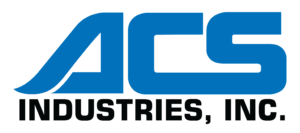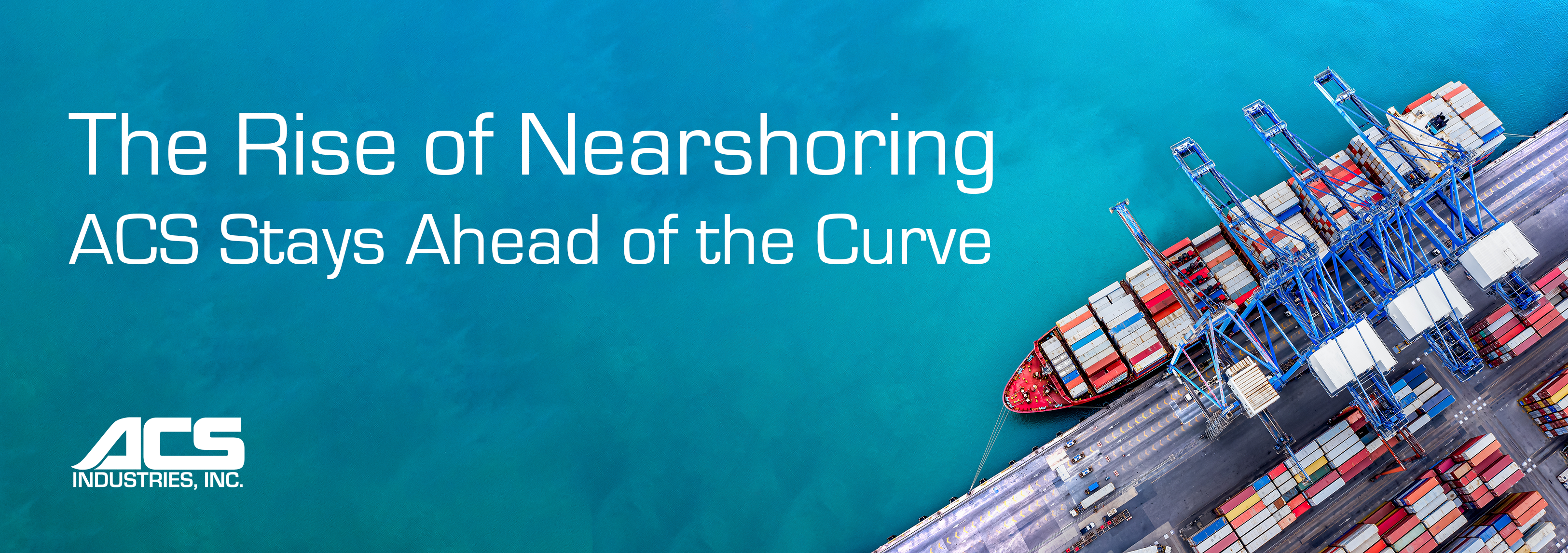The global manufacturing industry has abandoned globalization in favor of localization. Over the last couple years, billions of dollars have been spent around the world by companies relocating their manufacturing operations closer to geographies of their end users.
There are many reasons this trend, called nearshoring, has been gaining steam:
- Supply chain disruptions
- Trade wars
- Pandemic-related shutdowns
- Instability caused by the war in Ukraine
- High shipping costs
- Political uncertainties
- Strained relationship between the US and China
All these factors add up to mean that manufacturing in China and shipping to American, or even to European customers has become less and less cost effective and increasingly unreliable. Recent supply chain disruptions have been taking 6-12 months to normalize according to a Prosper Insights & Analytics survey and disruptions of this magnitude can have a ruinous effect on the relationships between manufacturers and their customer bases.
In order to limit exposure to this global turmoil and unreliability, many companies have been moving their manufacturing base to Mexico. Mexico boasts the advantages of:
- Proximity to the US market
- Cheap labor
- Abundance of human capital
- A well-established industrial sector
- Geopolitical stability
- Favorable conditions and duty-free imports under current NAFTA and T-MEC agreements
Manufacturing giants such as Unilever, Matel, and Tesla have contracted new plants in Mexico for these reasons. The nearshoring trend is so ubiquitous that as high as “88% of U.S.-based small and medium-sized businesses (SMBs) will reorganize their supply chains to leverage suppliers in the U.S. or Mexico in 2023, according to a survey from Gartner-owned consultant Capterra” (Cadena, 2023).
Mexico’s infrastructure is currently being pushed to its limits amidst this manufacturing boom, with 91% of its industrial parks reporting issues with power supply but an interesting dynamic of unprecedented private and foreign investment in Mexican energy assets is rising to combat this. Foreign investment has already begun pouring in from companies wishing increase the stability of their new Mexican plants, with 2022 seeing $35 billion in foreign direct investment in Mexico – up 12% over 2021 (Cadena, 2023).
In Nuevo Leon, where ACS has long had a formidable manufacturing presence, highway improvements are being made to facilitate passage to the US border. “Since October 2021, nearly $7 billion in foreign investment has poured into Nuevo León, making the state the largest recipient after Mexico City, according to the Mexican Ministry of Economy” (S. Goodman, 2023). In 2021, 30% of foreign investment in Nuevo Leo came from China, while 43% came from the US.
The number of shipping trucks crossings from Mexico to the US has steadily grown since 2020, with 12,740,244 crossings in 2022 representing a 12.5% increase over 2019 (Drenik, 2023). Increased shipping volume has led to a need for improved logistics solutions, a challenge shipping companies such as Nowports are meeting with the implementation of cutting-edge paperless and data-driven logistics platforms that add reliability and predictive capabilities.
This reinvigorated and transforming shipping sector, along with unprecedented foreign investment in the power grid, and state investment in transportation infrastructure will undoubtable lead to an increasing cost effectiveness of Mexican manufacturing, especially for companies wishing to sell their goods to American customers.
ACS’s network of established manufacturing plants around the world are already perfectly positioned to take advantage of the benefits of nearshoring. Our plants in North America, Europe and Asia create logistical efficiencies and risk mitigation advantages that are shared with our clients, no matter what continent that client resides on. ACS’s first factory in Mexico was established in the mid 1980’s and our footprint in the country has since increased to three factories totaling around 1 million square feet of manufacturing space. Decades of experience meeting the tight quality standards of the automotive industry have helped these Mexican plants develop a deep-seated culture of manufacturing excellence and exceptional quality control. ACS’s plants in Shanghai, Romania, and India were incorporated in 2000, 2015, and 2020 respectively.
To find out how ACS can put our global manufacturing force to work to deliver optimal results for your organization, contact us at +1 866 783 4838, or email us at [email protected].
Works Cited:
Cadena, R. (2023, June 9). Near-Shoring in Mexico: More than Manufacturing. Supply Chain Brain. Retrieved August 9, 2023, from https://www.supplychainbrain.com/blogs/1-think-tank/post/37367-near-shoring-in-mexico-more-than-manufacturing
Goodman, P. (2023, February 3). Why Chinese Companies Are Investing Billions in Mexico. The New York Times. Retrieved August 10, 2023, from https://www.nytimes.com/2023/02/03/business/china-mexico-trade.htmlDrenik, G. (2023, March 23). Why Nearshoring Is Closer Than Ever: How Mexico Is Becoming The Next Big Thing In Global Markets. Forbes. Retrieved August 11, 2023, from https://www.forbes.com/sites/garydrenik/2023/03/23/why-nearshoring-is-closer-than-ever-how-mexico-is-becoming-the-next-big-thing-in-global-markets/#:~:text=This%20phenomenon%20has%20been%20dubbed,of%20disruptions%20in%20supply%20chains.0
Drenik, G. (2023, March 23). Why Nearshoring Is Closer Than Ever: How Mexico Is Becoming The Next Big Thing In Global Markets. Forbes. Retrieved August 11, 2023, from https://www.forbes.com/sites/garydrenik/2023/03/23/why-nearshoring-is-closer-than-ever-how-mexico-is-becoming-the-next-big-thing-in-global-markets/#:~:text=This%20phenomenon%20has%20been%20dubbed,of%20disruptions%20in%20supply%20chains.0


